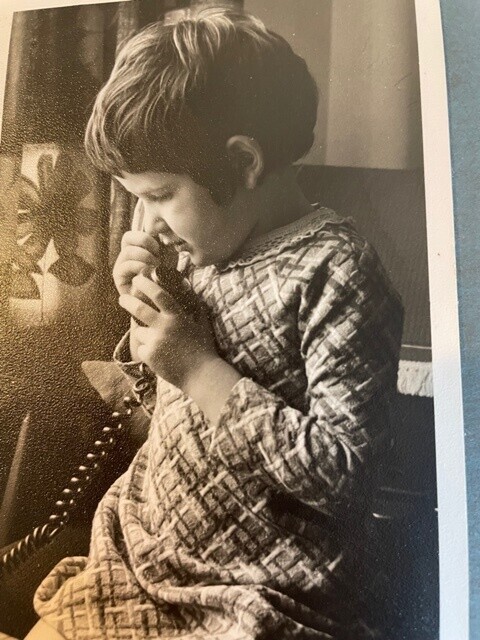As the ‘new term’ approaches, why not give yourself a personal communication re-boot? And who better to provide tips than a lipreader who has to put communication front and centre? Includes brief videos which let you try lipreading 2 words!
Give yourself more time
As August melts away (well, drains away here in the rainy North West of England), are you looking to September with hope or dread?
For some, the prospect of the ‘holidays’ (inverted commas deliberate) ending may not fill them with unbridled joy. I have the impression, from some clients, that more and more tasks and responsibilities are being loaded onto people in their jobs. Is that the case for you? If so, you may feel obliged to speed up to keep up. And this can be reflected in how you communicate. It can seem as if there is more and more to ‘fit in’. But what is happening to the clarity of what you say?
Did you know that just by making yourself speak more slowly you:
- give yourself more time to organise your thoughts so you –
- are less likely to repeat yourself or waffle
- could breathe better (more deeply) as you speak
- will be understood better
- will come across to your listener/s as more powerful?
Be more inclusive
If the list of positives above is not enough to convince you to try going slow, there is a further benefit. You will make your communication more inclusive to a wider range of listeners, whether it is on a video or audio call or face to face. People whose first language is not English, lipreaders, people with auditory processing condition, people who are tired, hungry and distracted…. Why wouldn’t you want to make life easier for them?
Set the scene
Much language is ambiguous. And if you are deaf or hard of hearing, the level of ambiguity soars. I once read a description of trying to lipread a random word as ‘like going into the British library looking for “a book” but with no further information’. Context is crucial. This provides a good tip for anyone who wants to communicate well. Start by setting the scene. Just one short sentence ‘I want to talk about X’, or ‘You know that project/situation to do with Y?’ can help any listener focus well and be prepared to understand fully what you say next.
Sounds like...?
If you have played Charades, you may remember how hard you have to concentrate to pick up meaning from someone’s gestures and mime. Helpful way-marker phrases such as ‘sounds like’ give useful pointers. To some extent lipreading can be a similar guessing game. Fewer than half of English sounds are lip-readable. Several look the same when there is no sound because they are produced in the same way.
Are you up for a challenge? The sounds represented by the letters T, D and N are all made with your tongue at the front of your palate. Go on – try making them.
Now watch this silent video with one word. It uses a combination of the letters above. Can you guess what it is?
How did you do?
As the sports presenters say, ‘look away now if you don’t want to know the score’ or in our case ‘answer’.
So, what was the word?
Do you see how important context is? There are no clues as you watch. If someone has said ‘This is part of a conversation about organising an event’ – you might have been able to guess more accurately.
The word in the video looks like any one of the following:
net Ned dead Ted ten den debt tête
Ok the last one was French, but we use phrases such as ‘tête-a-tête’ quite commonly in English.
I am not going to give the answer because in fact you would need to decide from the context which one of the above fitted best.
A funny story
Finally, here is a true story showing how easy it can be to misunderstand – and how funny!
When I worked at the British Embassy in Poland, I benefited hugely from having lipspeakers work with me to support communication. These superb professionals are experts at making language lipreadable and its meaning clear. Without them, I could never had made the use of my experience and skills that I have. But now and then there can still be hiccups. And it can be funny at times. During one staff meeting we were talking about management of the building and resources. The then Deputy Ambassador, Patrick Davies, said (I thought):
‘We need to look at how much we are spending on sanitary products. It was (several thousand) zloty over the past 3 months’.
I put my hand up and asked:
'Well if we are spending so much, why is there never any toilet paper in the ladies loos?’
Patrick and colleagues looked baffled and there was one of ‘those’ pauses. It was clear I had made a faux pas (see – French again!). Then, after a bit of clarification, I realised that the word in bold above that I thought was ‘sanitary’ had been something quite different. When I explained there was a lot of laughter shared and certainly livened up the meeting too.
What was the word, do you think? Try lipreading it on this video and see if you can finish the story –and understand the joke! (See below for the answer).
If you decide to have a go at re-booting your communication, I hope it helps you and those around you. And if you enjoyed this article why not check out the impact of my public speaking work or let me know your feedback?
P.S Did you work out the word from the story? It was stationery! Try saying both words into the mirror silently and you will see how similar they look.
